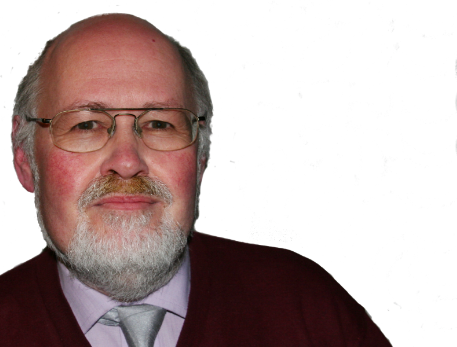
Website updated
We’ve updated the website to include more of Taunton Deane Independent candidate Bruce Gauld’s policies. Please click here to read all about them


Vote for Bruce Gauld
Your Independent candidate
for Taunton Deane
Thursday, May 7, 2015











Promoted by Independent candidate Bruce Gauld, 22 Amory Road, Dulverton,Somerset, TA22 9DY
National Insurance Rates
One of the problems at the moment is a large number of people who do work but have low-
At the moment for the payment of NI there is a Lower Earnings Limit which is £112 a week. Between that and the Primary Threshold which is £155 a week you do not pay NI but you are given a credit. I would abolish the Lower Earnings Limit and it would become the Primary Threshold and everybody would pay NI as soon as they earned £112 a week. To offset that I would lower the rate from 12% to 10%.
People at the bottom would be paying for the first time but the large majority would be paying less. At the moment there is an Upper Earnings Limit of £815 a week. I would raise that to £1,000 a week. People at the top would be paying more. The current rate of contributions above the Upper Earnings Limit would remain at 2% but would now start once you earned more than £1,000 a week.
Employers National Insurance which currently starts at £156 a week would start at £112 a week, the same as employees. However, the rate would be reduced from the current 13. 8% to 10%. All other existing NI Rebates would be abolished.
This would mean that the cost to companies of providing jobs would be reduced.
Income Tax Rates and Allowances
The basic rate of 20% and the 40% rate would remain the same. However, the top rate of 45% I would abolish. I would also favour a simplification of the Tax Laws and the eradication of as many other allowances as possible. This should mean that it would no longer be worth the effort to avoid (perfectly legal) tax.
I would not raise the basic rate tax threshold but the upper-
Zero-Hour Contracts
I can only imagine what it must be like to not know what you are going to earn from one week to the next. However, because of family circumstances and the way that in work benefits are calculated it actually suits some, not all, people.
The one change I would make is that employers would have to guarantee the number of hours they would offer per month. This would have to go hand in hand with the way that benefits were calculated, otherwise if you did a lot of hours in one week and none in the rest of the month you would end up worse off than if you did a few hours every week.
Trade Unions
I have never belonged to a Trade Union and would never join one. I prefer to look after my own interests and if I lost out I would move on. The one area that has been discussed over the last few years is the level of support required for a union ballot to have legitimacy before taking industrial action. I would suggest that after every General Election the turnout in the election for instance, let us say this year it is 70%, would be the turnout required in any union ballot.
The percentage obtained by the Government -
Having the prospect of industrial action over a long period would not be beneficial. I would prefer it if British unions had a more constructive approach to management, but that is an attitude and frame of mind which cannot be legislated for.
Foreign Policy/Military Action
Since 1997 we have become embroiled in many conflicts. So that you understand my views I will explain what my position would have been if I had been an MP when they happened. First Gulf War (Kuwait) Yes. Second Gulf War (Iraq) No. Afghanistan No. Libya No. Syria No. Ukraine No.
We were quite rightly involved in Kuwait. A sovereign country with which we had close ties had been invaded and occupied. Iraq, Afghanistan, Libya and Syria are all countries which do not have a Western concept of democracy. They were all governed along tribal or Muslim sect lines or with a certain amount of secularism. The cost of Western involvement is now plain for all to see. The West originally became involved in Afghanistan because of the Russian invasion and the West considered Afghanistan in their sphere of influence.
In the case of Syria I would have supported Assad, without becoming militarily involved; he to all intents and purposes ran a secular state. The conflict in Ukraine was caused by EU expansionism into the Russian sphere of influence. Sound familiar? Foreign policy has, in my opinion, been a disaster ever since 1997.
Adult Social Care
The system which used to be in place and worked fairly well was quite simple. If you needed an operation you went to a large general hospital. Then as soon as it was safe to do so you either went into a “Cottage” hospital to recuperate or you went into a nursing home or you went home. However, with the advances in medical science at the time of the last hospital rebuilding programme it was decided that patients would not need to spend as long in hospital.
Therefore, not as many beds would be required -
This, coupled with GP services not being able to cope with the sheer number of patients, has led at times to a complete breakdown of the system. Medicine is a bottomless pit, it can consume money without pause, so just giving the NHS more and more money will not solve the problem. Nor will privatisation. The money spent on the NHS must be better allocated. This may mean that certain areas of treatment will no longer be provided. Waste will have to be eliminated.
I firmly believe that the NHS must remain free at the point of use for all British people. There must be more joined up thinking. GPs, hospitals and after-